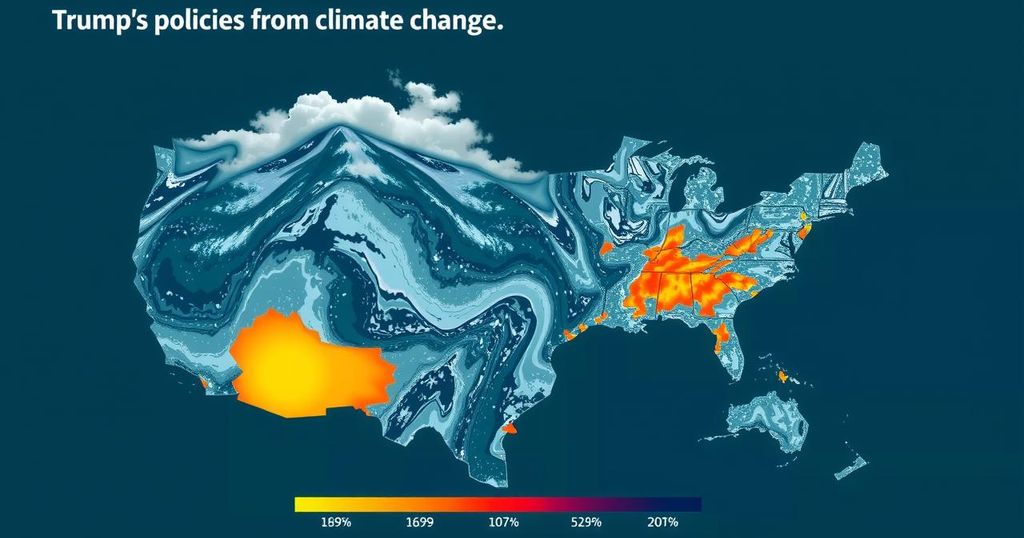UC Berkeley scholars warn that Donald Trump’s Project 2025 represents a significant threat to climate efforts by increasing fossil fuel reliance and dismantling essential regulations. If elected, Trump would raise U.S. carbon emissions, undermining progress made under the Biden administration. Immediate actions are critical to avoid catastrophic climate impacts, highlighting the importance of political choices in shaping our environmental future.
In light of the current climate crisis, scholars from UC Berkeley have issued grave warnings regarding the implications of Donald Trump’s Project 2025. This initiative aims to increase fossil fuel production, eliminate essential environmental regulations, and undermine critical climate monitoring agencies. It poses an existential threat to the planet and undermines recent efforts to reduce carbon emissions. If elected, Trump would significantly heighten U.S. carbon emissions, reversing years of progress made under the Biden administration and potentially contributing to catastrophic consequences for global ecosystems. Trump’s denial of climate science only further exacerbates this dire situation. The Biden administration has made strides in combating climate change, evident from the implementation of the Inflation Reduction Act, which allocated a substantial budget to green energy initiatives. In contrast, Trump’s policies would regress to a time of rampant emissions, threatening international progress inspired by the European Union’s recent emissions reductions. Without immediate and decisive governmental actions, we risk surpassing critical climate thresholds that endanger future generations. As such, the urgency to address these issues has never been more pronounced, with many experts emphasizing the need for a significant shift in governance to avert ecological disaster. The stakes are high: should humanity fail to curb CO2 emissions and transition to sustainable energy by 2050, rising global temperatures and exacerbated weather events could lead to unprecedented societal challenges. Scientific consensus underscores the necessity of immediate action to avoid catastrophic impacts from climate change, including severe heat waves and drastic alterations to our natural landscape. As we approach a critical point in our response to climate change, it is imperative to recognize the consequences of our political choices. The global community faces crucial decisions ahead, especially considering rising sea levels and environmental degradation, particularly in vulnerable regions like the Middle East. As climate refugees could number in the hundreds of millions by 2050, cooperation in adapting to climate realities must become paramount. Only through collaborative action, informed by science and dedicated governance, can we hope to ensure a viable future. The upcoming elections present an opportunity to choose leaders committed to sustainable policies over those who may prioritize short-term economic gains at the planet’s expense.
The discussion surrounding climate change and its impending threats has gained traction among environmental scholars and advocates. The political landscape, particularly in the United States, plays a critical role in shaping responses to climate change. With the potential re-election of Donald Trump, concerns have arisen regarding his proposed policies under Project 2025, which critics argue would dismantle existing climate protections and roll back progress achieved in recent years. An understanding of these factors highlights the urgent need for proactive policy measures in combating climate change.
Overall, the intersection of climate policy and political leadership cannot be understated. The election outcomes in the United States will significantly influence the direction of global climate efforts. With pressing deadlines and dire consequences ahead, it is essential to prioritize governance that champions environmental stewardship over shortsightedness. As climate challenges mount, elected leaders must adopt rigorous approaches to mitigate damage and promote sustainability for future generations.
Original Source: www.juancole.com






